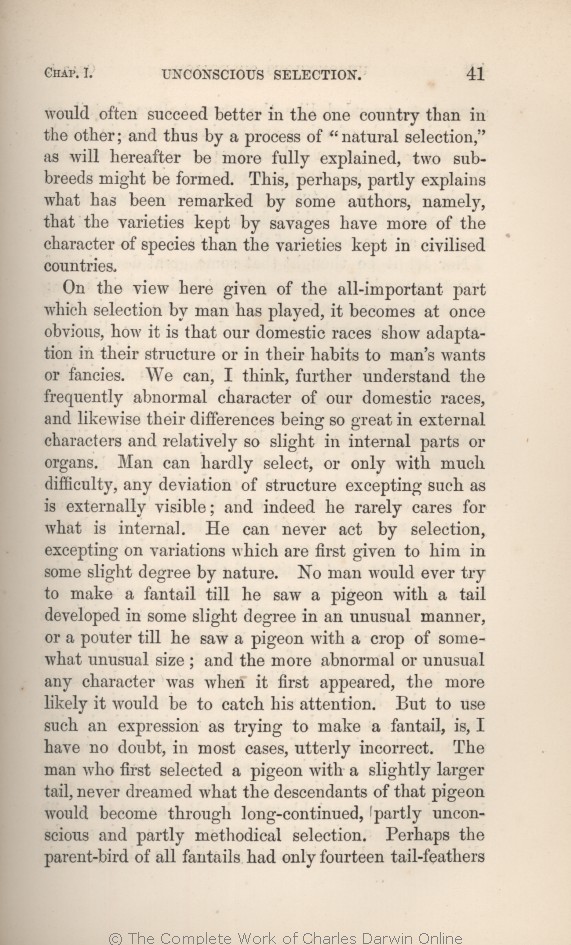would often succeed better in the one country than in the
other; | other; 1860 1861 1866 1869 1872 | | other, 1859 |
| what 1859 1860 1861 1866 1869 |
| why the varieties kept by savages, as 1872 |
| namely, that the varieties kept by savages 1859 1860 1861 1866 1869 |
| OMIT 1872 |
| species 1859 1860 1861 1866 1869 | | true species 1872 |
|
|
On the view here given of the
all-important | all-important 1859 1860 1861 1866 1869 | | important 1872 |
| mans 1860 1869 | | man's 1859 1861 1866 1872 |
| characters 1859 1860 1861 1866 1869 | | characters, 1872 |
| fantail 1869 1872 | | fantail, 1859 1860 1861 1866 |
| incorrect. 1859 1860 1861 1869 1872 | | in-correct. 1866 |
| methodical 1859 1860 1861 1866 1869 | | methodical, 1872 |
| parent-bird 1861 1866 1869 1872 |
| parent bird of 1859 1860 |
| of all 1861 1866 1869 1872 | | all 1859 1860 |
|









